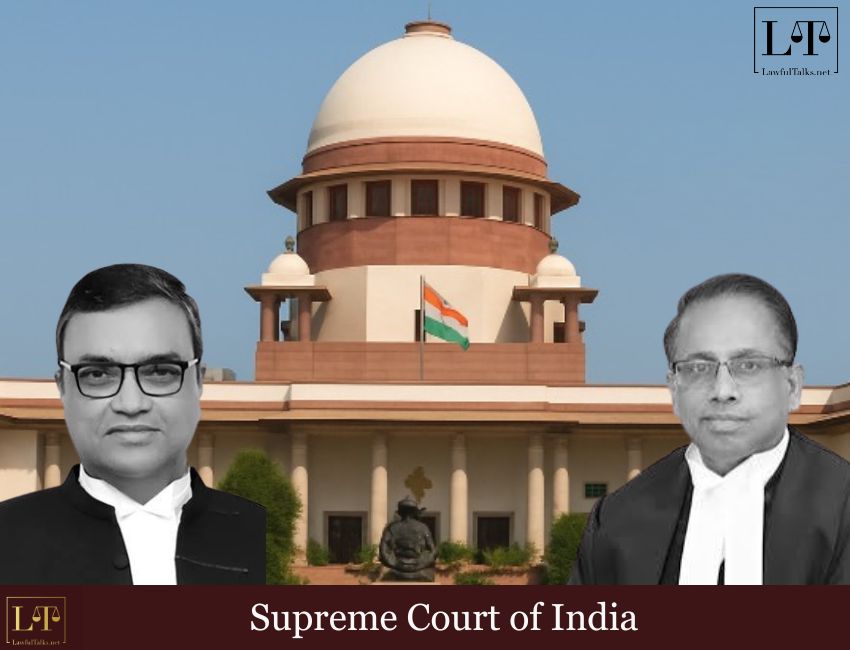Allahabad HC Sets Aside Afzal Ansari's Conviction, Allows Him to Continue as MP

In a striking intervention that underscores the boundaries of judicial oversight, Justices Dipankar Datta and KV Viswanathan of the Supreme Court on Monday set aside select directives from the Kerala High Court, which had mandated the Cochin Devaswom Board to reimburse license fees and launch a vigilance probe into the Chinmaya Mission Educational Cultural Trust.

The duo ruled that these instructions exceeded the permissible limits of the High Court's authority, emphasizing how such overreach could unfairly prejudice parties involved.
The controversy traces back to a land allocation made in 1974 by the Cochin Devaswom Board to the Chinmaya Mission for purposes encompassing religious, cultural, and social activities, initially set at a nominal annual charge of ₹1 that saw only slight adjustments over time, reaching ₹142.
However, in 2014, the Board revised this to ₹15 lakh per year, incorporating periodic updates every three years, prompting objections from the Trust that included remitting payments triennially in line with the initial agreement.
When the Board rejected these protests, the Trust turned to the Kerala High Court, which dismissed demands for ₹20 lakh arrears while upholding the need to nullify the contested orders—Exhibits P1, P2, P3, and P9—aiming to quash the enhanced impositions.
Dissatisfied with the High Court's further stipulations, which escalated the fee hike and directed a vigilance inquiry into the original Board's actions amid a prior regulatory lapse, the Trust escalated the matter to the Supreme Court.
They contended that these supplemental rulings placed them in a more adverse position than before, extending beyond the core issues raised and imposing undue investigative burdens without proper procedural safeguards.
Authorizing the High Court's ruling, akin to precedents such as Deepak Kumar vs Union of India [(2005) 12 SCC 209] and Ashok Kumar Miglani vs State of UP [(2016) 12 SCC 678], the Supreme Court observed that no material indicated the petitioners would endure severe administrative hardship or that the fee revisions posed an insurmountable financial strain meriting relaxation of norms. It highlighted how the challenged adjustments risked creating a heavier load than the original mandates, potentially undermining fairness in such fiscal disputes.
The Court pinpointed that the appellants had solely contested the specific fee escalations. By introducing fresh concerns and probes, the High Court ventured into uncharted territory.
"Litigants go to court for vindication of their rights when they perceive that the court there an both parties, grant stay on the facts and circumstances of the depending case. As pointed out in VK Majotra (supra) if without putting parties on notice (even in the rare and exceptional case) it travels beyond the scope of the facts/writ petition, the takes observations and directions makes any strong chilling effect to the parties by surprise and makes any strong whether litigants going to court in matters where they were in the result in matters where they would be rendered worse off than what they were before initiating the proceedings. This, before indulging in access of the Court observed in exceptional circumstance."
The bench further noted that such expansive actions could lead to unintended consequences, as the orders risked disregarding essential legal principles. If an expedition beyond the writ's bounds is necessary, the petitioning party must at minimum receive an opportunity to clarify and mount a defense, a step the court had evidently skipped.
This could seriously impact the access to justice and consequentially the very rule of law. Hence, in such courts must exercise great caution and circumspection.
The Court "should suffer adverse consequences simply for seeking judicial redress," the Court affirmed, doubting the High Court's rationale for probing without necessity. It questioned whether the appellate had any chance to clarify the transactions (supra had application to direct the Chief Vigilance Officer to hold an inquiry into the matter relating to was not warranted on the facts and circumstances of fishing and roving enquiries character of the impugned even in given case"
"The appellant had no opportunity to explain whether T. Krishnakumar (supra) had application to direct the Chief Vigilance Officer to hold an to the matter relating to was not warranted on the facts and circumstances of fishing and roving enquiries character of the impugned even in given case if the High Court would have consider to pass such directions, it would have to the appellants on notice," the Court said.
In conclusion, finding the directions unwarranted, the appeal was allowed.
Case Details : P. Radhakrishnan & Anr. VERSUS Cochin Devaswom Board & Ors.
Appearance:
Advocate For Petitioner: Mr. Gaurav Agrawal, Sr. Adv. Mrs. Anu K Joy, Adv. Mr. Alim Anvar, Adv. Mr. Santhosh K, Adv. Mrs. Devika A.l., Adv. Ms. Smita Amratlal Vora, AOR
Advocate For Respondent :Mr. P.V. Dinesh, Sr. Adv. Mr. P. S. Sudheer, AOR Ms. Anna Oommen, Adv. Mr. Rishi Maheshwari, Adv. Ms. Anne Mathew, Adv. Mr. Bharat Sood, Adv. Mr. Jai Govind M J, Adv. Mr. Jashan Vir Singh, Adv. Mr. Harshad V. Hameed, AOR Mr. Dileep Poolakkot, Adv. Mrs. Ashly Harshad, Adv. Mr. Anshul Saharan, Adv

Anam Sayyed
4th Year, Law Student
Latest Posts
Categories
- International News 19 Posts
- Supreme Court 390 Posts
- High Courts 383 Posts



















































































































































































































































































































































































































































































































































































































































































































































































































